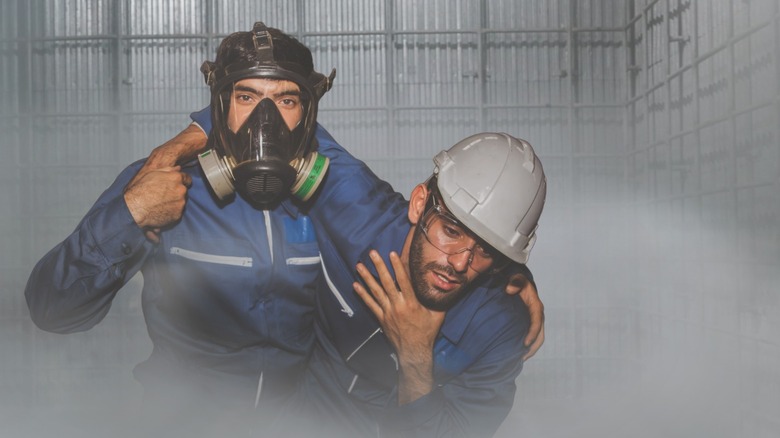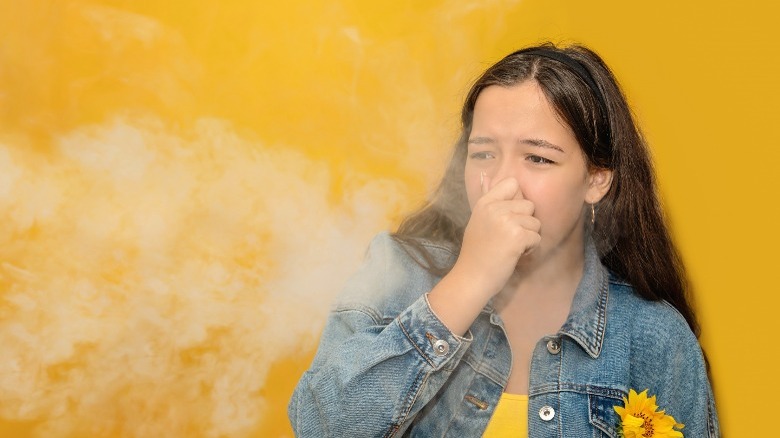How Smoke Inhalation Affects Your Body
Smoke from fire — whether it comes from a household appliance, building fire, or wildfire — can negatively affect your health. It may come as a surprise to learn that most people who die from fire-related incidents succumb to smoke inhalation, and not burning (per WebMD). Smoke inhalation happens when you breathe in the gases and particles from smoke. While smoke inhalation in small amounts usually does not produce long-lasting effects, exposure to dangerous chemicals, heavy smoke, or extended time breathing smoke can lead to health complications (via Merck Manual).
According to the Centers for Disease Control and Prevention (CDC), smoke from fires can contain chemicals like polycyclic aromatic hydrocarbons, gases like carbon monoxide, and even particulate matter. If the smoke you inhale comes from a fire that burns plastics and other artificial materials, you may be at a greater risk of poisoning (via Kaiser Permanente). Here's everything you need to know about smoke inhalation.
Effects, symptoms, and treatment
Smoke inhalation can cause a number of issues. According to WebMD, the combustion from a fire reduces the levels of available oxygen in the air, while the smoke can oversaturate the air with compounds like carbon dioxide. The resulting chemical irritants can irritate or swell your airways. Additionally, there are several ways smoke inhalation can harm you (via Merck Manual). Smoke inhalation can damage your body by burning the mouth and throat, poisoning the body via exposure to harmful chemicals, and can even cause suffocation from exposure to carbon monoxide. Other chemicals, like hydrogen cyanide and hydrogen sulfide, can inhibit the body's use of oxygen.
A number of symptoms are associated with smoke inhalation. Healthline lists brain fog, chest pain, cough, headache, irritated eyes, and shortness of breath as potential signs of smoke inhalation. Certain symptoms, like disrupted breathing, may not develop for a few hours (per Kaiser Permanente). It is not uncommon to cough up clear or black mucus. Medical News Today says that treatments range from bronchodilators, nebulizers, and intravenous fluids to different forms of oxygen therapy. You can prevent some instances of smoke inhalation by installing smoke alarms.


